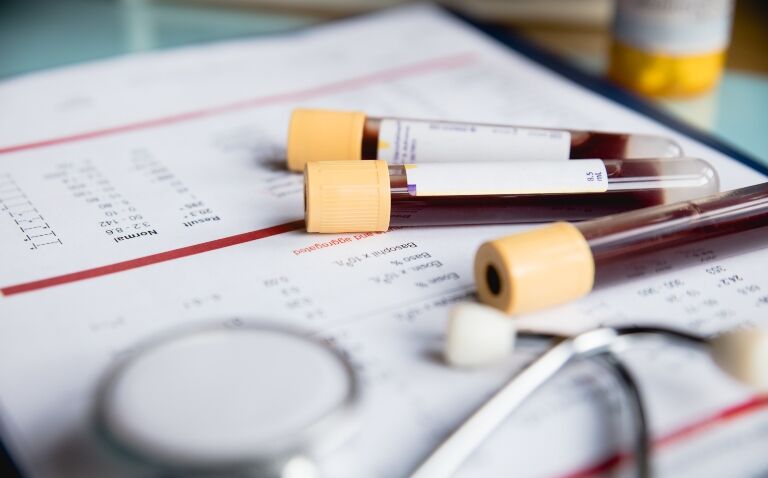A simple sex-specific blood protein test may one day be used to identify 18 different early-stage cancers, according to promising research.
Reporting their findings in BMJ Oncology, the researchers said the test, which is based on a panel of 10 proteins could ‘kickstart’ a new generation of screening tests for early detection.
In the proof-of-concept study, the team collected plasma samples from 440 people diagnosed with 18 different types of cancer before they were treated, as well as from 44 healthy blood donors.
They then measured more than 3,000 proteins in order to identify biological signatures associated with different cancers.
Through a process of elimination they discovered 10 sex-specific proteins differentially expressed among the plasma samples from cancer patients and healthy people.
Because the protein signatures they found differed significantly between men and women it is likely they are sex-specific for all cancers, the researchers explained.
On their own, the individual proteins were only moderately accurate when it came to detecting early-stage disease but the accuracy increased when combined, the team from the from the US biotech firm Novelna reported.
Their research showed the proteins could be used to detect stage 1 to stage 3 disease and all types of cancer, but they found they were particularly effective at picking up early-stage disease.
Overall, they identified 93% of stage 1 cancers among the men and 84% of stage 1 cancers among the women, with 99% specificity and 90% sensitivity in the men and 85% sensitivity and 99% specificity in the women.
‘Our new generation protein-based plasma test has shown high sensitivity in detecting a variety of early-stage tumours in asymptomatic patients, making it a strong candidate for use as a population-wide screening tool that is not currently achievable with existing tests or techniques,’ they concluded.
Other experts commented that the approach showed promise but urged caution because much work would need to be done before it could be used at a population level.
Dr Thomas Round, a GP and academic clinical research fellow at King’s College London, said: ‘Early detection is a key objective for improving cancer outcomes, and there is a lot of interest in multi-cancer early detection (MCED) tests in screening for cancer signals before symptoms develop.’
He said the approach of using plasma proteins was interesting, though there are some limitations for the study including the relatively small sample size.
He added: ‘There needs to be further larger scale research, both observational and ideally a randomised trial into this specific test, including in different populations.
‘While this is interesting work in the rapidly developing field of MCED tests, this study shows the need for further trials in the area of early cancer detection.’
A version of this article was originally published by our sister publication Pulse.










